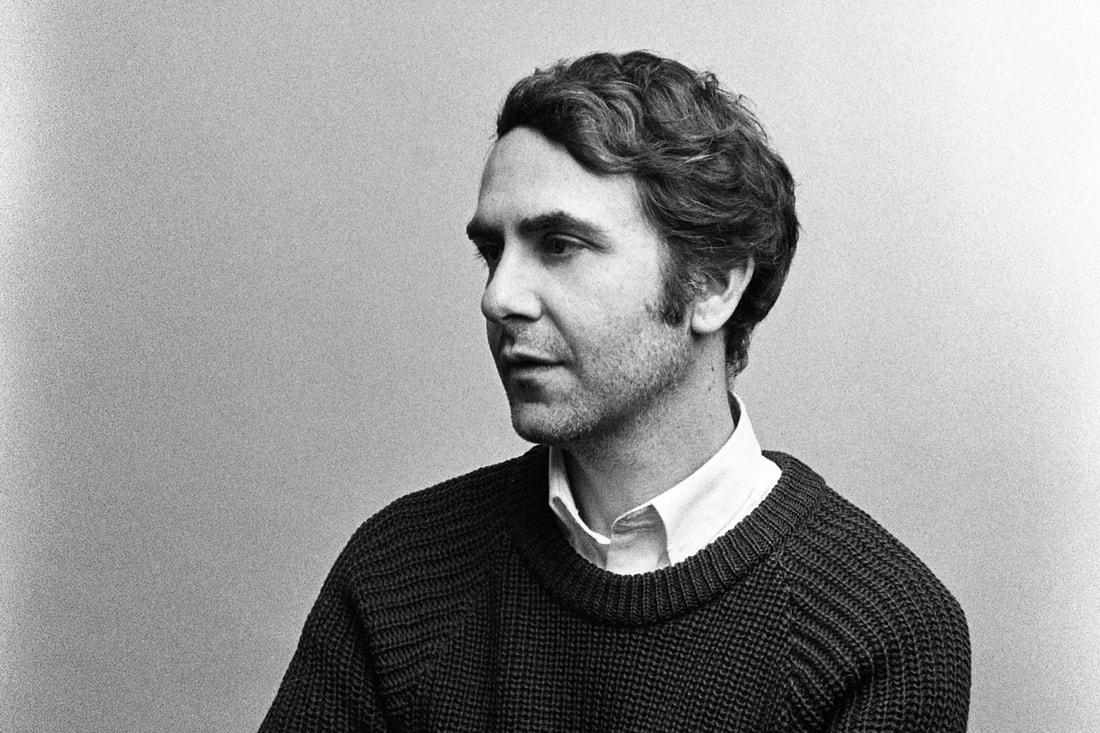|
Interview by Kurt B. Reighley Idiosyncratic yet understated, the self-titled third solo album from Chris Cohen recalls '80s outliers like Microdisney and Young Marble Giants, even pre-fame Thomas Dolby, with its conversational singing style and hook-laden, thoughtful grooves. On the eve of his North American tour, Cohen talks underground film, Scottish folk songs, and why a whisper is sometimes louder than a scream. Chris Cohen doesn't look like he'd have much in common with John Waters. Certainly not at first glance. If you stood him alongside the Pink Flamingos filmmaker in his pencil moustache and Comme des Garçons threads, the Los Angeles native would probably fade into the wallpaper. "It's not my style to be outrageous looking," Cohen admits. Born in 1975, he has no tattoos, no legacy of eye-popping hairdos, no Yohji Yamamoto jackets with stab wounds in the back. Even piercing his ear at age 13 was a non-event. ("My dad did it, too, so that took the wind out of my sails.") Yet Cohen and the notorious Baltimore cineaste share at least one passion: Avant-garde filmmaker George Kuchar. Waters has praised the underground movies of George and brother Michael as his "first inspirations … bigger influences than Warhol, Kenneth Anger, even The Wizard of Oz." "When I first encountered George Kuchar's films, I felt like he was one of my friends," Cohen remembers. He cites Kuchar's 1986 account of life in an Oklahoma motel during tornado season, Weather Diary 1, as a particular favorite. "He came and spoke to my documentary film class in college and I just thought, 'This guy is a real artist.' Humble, hard-working, inventive … he reaches back to tradition and says something new and personal." That description could double as a capsule review for Cohen's self-titled, third solo album (out March 29 on Captured Tracks). With its conversational singing style and hook-laden, thoughtful grooves, the idiosyncratic yet understated Chris Cohen recalls '80s outliers like Microdisney and Young Marble Giants, even pre-fame Thomas Dolby. Cohen's Sotto voce delivery suffuses his songs with a heightened sense of intimacy, compelling the listener to lean in closer. "It’d be cool if I could really belt, but not everyone has a voice like that," he says of his unadorned vocal style. "I’ve learned to be louder and put more energy into my singing, but there seems to be a physical limit." Pushing it only ends in laryngitis. "That’s happened a couple times on tour – my voice just disappears." Cohen also approaches composing with a less-is-more aesthetic. Songs often begin as fleeting ideas saved on his cell phone. "Good ideas are about one in 50 for me," he says. "I throw things out and strip away ideas until I like it all. Also, I find that as I strip ideas away, the ones left become richer and seem to grow themselves into the songs." The album's straightforward simplicity belies the complex emotions its author worked through during two years spent writing and recording. His parents divorced while he was making the record, and Cohen's troubled relationship with his father – a music industry vet who hid his sexual identity and "various drug addictions" from his family for decades – informs standout selections including "Edit Out" and "Green Eyes." Fortunately, Cohen didn't undertake this endeavor alone. Saxophone, piano, harpsichord and other keyboard parts were provided by guest players, as were the lyrics for "Twice in a Lifetime," "What Can I Do?" and "Sweet William." "I wrote a bunch of songs that were dark and personal and thought it’d be good to have some other voices in there, too … I chose collaborators knowing that their contributions would complement mine and they'd bring a welcome sensibility and mood." Although the performances feel fresh and in-the-moment, the album's sonic palette harks back to Cohen's youth. "I wanted my record to be a better version of [the Police's] Synchronicity or [Genesis'] Abacab," he says. "It didn’t really turn out sounding like any of that Top 40 music from 1980-84 that I loved as a child, but I thought about the production of that time and my own mixed feelings about it." "I wanted to revisit that time in my life and try to understand what music is about for me and retrace my steps psychologically, not just about music." Chris Cohen also includes a new interpretation of "The House Carpenter" (aka "The Daemon Lover"), a traditional Scottish ballad previously waxed by everyone from Bob Dylan and the Handsome Family to Dutch psychedelic rockers Shocking Blue. Cohen first heard the song in college, via a cassette that included a early '60s rendition by the Watson Family, featuring guitar legend Doc Waston's mother, Annie, on vocals. "There are so many versions of that song, but Annie Watson's is super-different and droning, with no chord changes and an odd old-time melody," Cohen says. Both there and here, it's a heartwarming tale of a wife gone astray, abandoned children, and death by misadventure at sea … sounds like a story John Waters would love. Chris Cohen kicks off his North American tour at Club Congress in Tucson, AZ on Monday, April 1.
0 Comments
Leave a Reply. |
Categories
All
Interview Archives
July 2024
|


 RSS Feed
RSS Feed